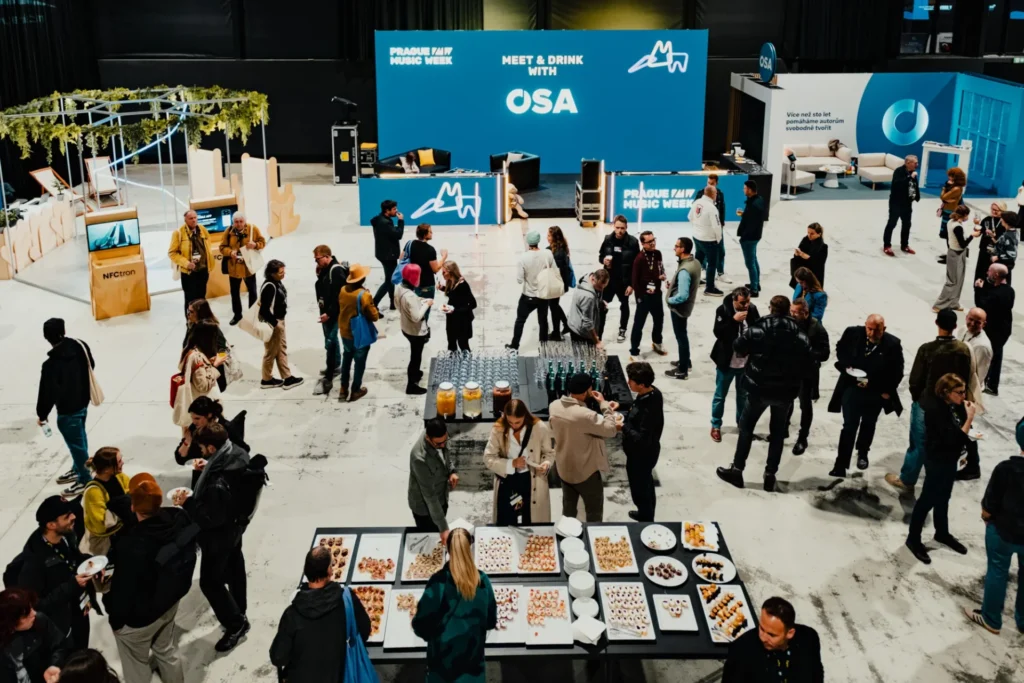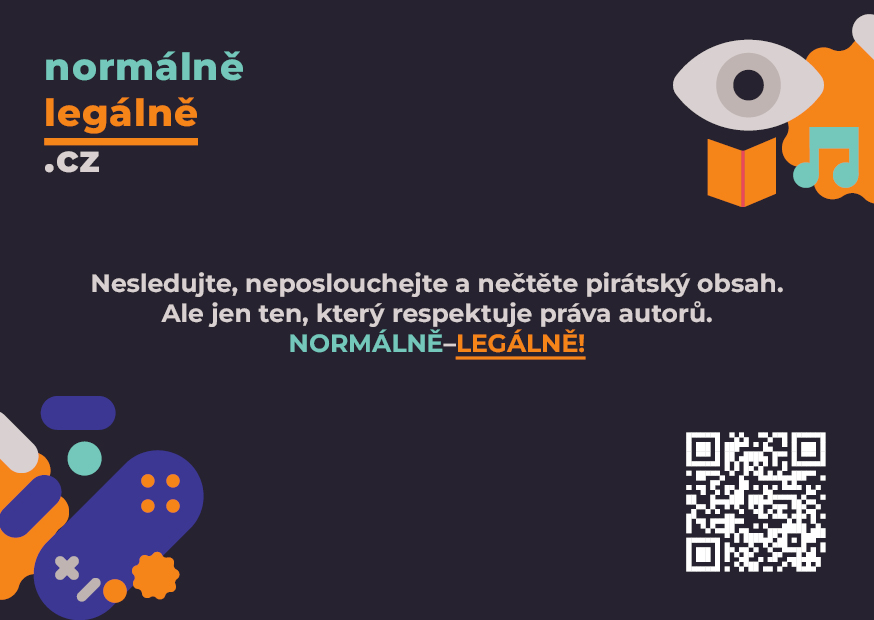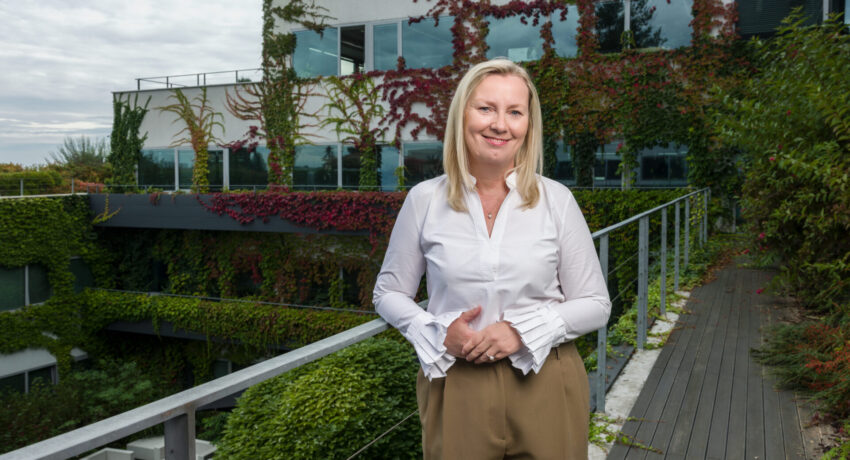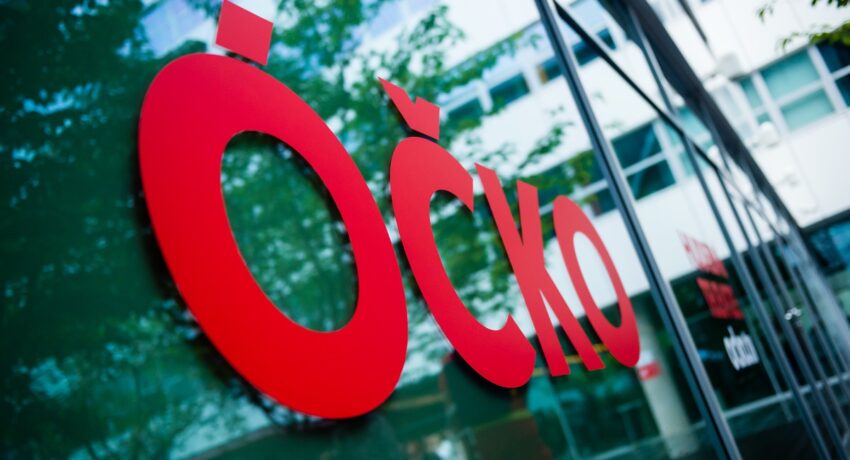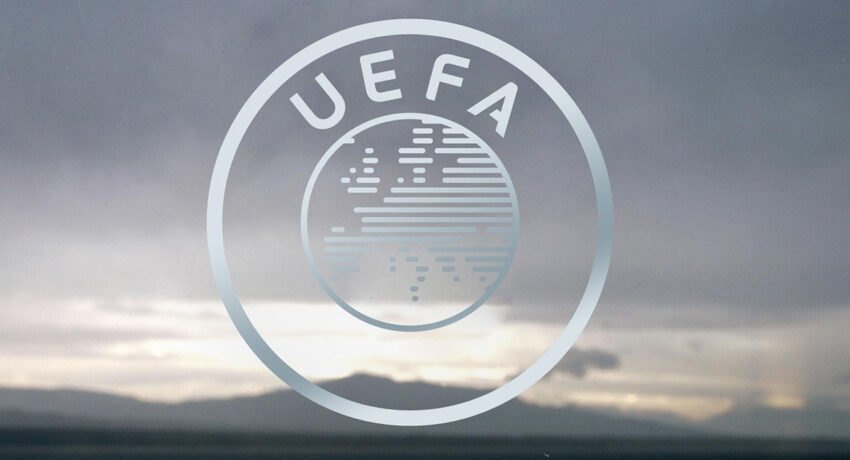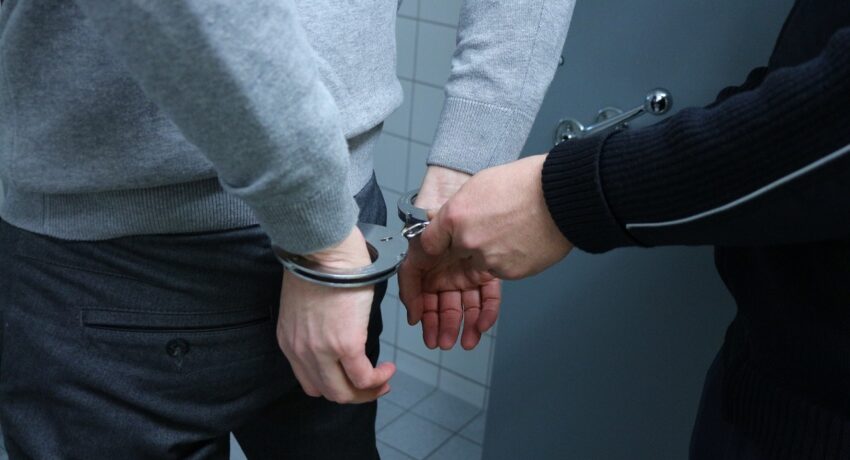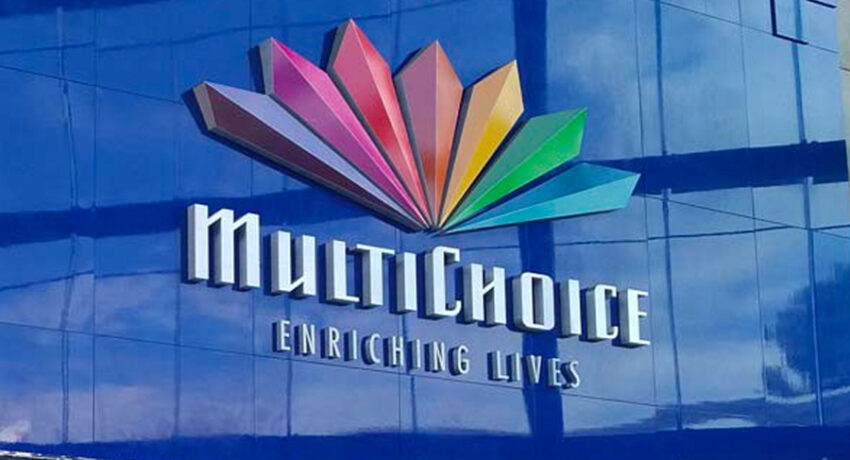The third annual Prague Music Week 2025 conference and trade fair took place this year from 5 to 7 November at the Křižík Pavilions at the Prague Exhibition Grounds.
Prague Music Week confirmed its status as a key event in the Czech music industry once again this year. The fair, intended for music professionals, authors and musicians, as well as a meeting place for publishers and representatives of technology companies, offered a rich programme and opened up a number of the most current topics in the music sector.
The partner organisation, the Association of Commercial Television Stations, OSA, appeared at this year’s event in a new role as the main partner and exhibitor, confirming its long-term involvement in the development of the domestic music industry. Throughout the event, a team of experts was available at the OSA stand to explain to visitors how collective copyright management, music licensing and support for music creation work. The stand became a natural meeting place for industry professionals and a platform for open discussion on copyright in the digital environment.
Source: OSA OSA also participated in the conference’s professional programme and attracted a great deal of attention with its discussion on “AI from a copyright perspective” . Together with guests – singer and songwriter Dan Bárta, Martin Čmejrek (Mama AI), Martin Kudla (Supraphon) and Petra Žikovská (IFPI) – they discussed the impact of artificial intelligence on creative work, responsibility and the future of intellectual property protection in the digital era. In the follow-up block , “How does the music recording economy work? The collapse of musicians’ incomes,” there was a lively debate about the current revenue model in the music industry and the challenges faced by musicians and publishers in the age of streaming platforms, as well as how the financial flow in the music industry works from the first recording to the final payment to the artist’s account, and whether the distribution of revenues among all shareholders in the recording is fair.
AKTV’s participation in Prague Music Week 2025 served as a teaser for the Normálně legálně(Normally Legal) project, which has long been dedicated to raising awareness about copyright and combating illegal content sharing. The project offers a comprehensive database of verified legal sources and helps the public navigate copyright issues. Thanks to the partnership with OSA, it was possible to raise the profile of the project during the event and directly present its practical benefits to visitors through a catalogue of legal sources on the website normalnelegalne.cz.
About Prague Music Week: PragueMusic Week is a platform for everyone who shapes the future of the music scene. Prague Music Week 2025 offered 47 conference discussions, workshops and lectures featuring nearly 100 speakers. Twenty-one artists performed at four different venues during the festival. The fair featured 25 exhibitors whose ideas are pushing the music world forward. New this year was a voluntary admission system, which made it possible to come without paying admission “on a trial basis,” making it accessible to everyone. The next editionwill take place from4 to 6 November 2026at the Prague Exhibition Grounds and in Prague clubs, once again with a rich and inspiring programme. For more information, visitwww.praguemusicweek.cz.
Source: Prague Music Week, OSA; AKTV


